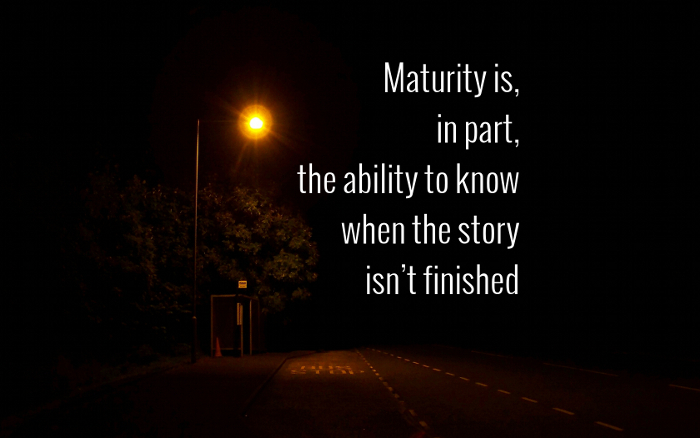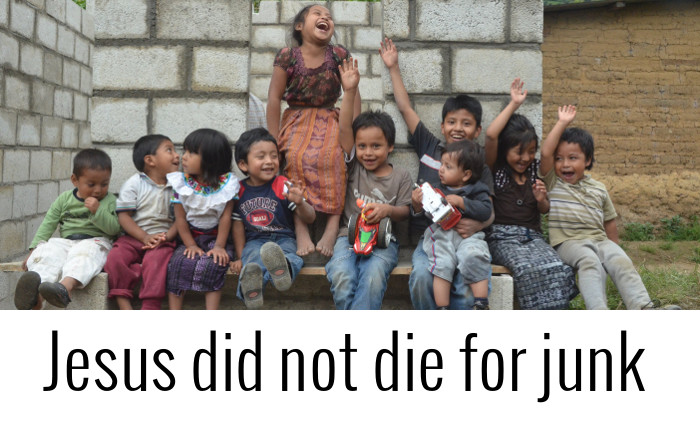
“Don’t judge me.”
This mantra is embedded in our culture. Sometimes people invoke the words of Jesus in Matthew 7:1 to support it: “Do not judge, or you will be judged.”
Here’s what many people mean by this:
- There are no moral absolutes.
- What’s right and wrong for me isn’t necessarily right and wrong for you.
- Because your beliefs and my beliefs are equally valid, neither one of us has the right to impose our beliefs upon the other.
- I should not condemn you for engaging in behavior that I think is wrong.
In addition, some people assume that the only purpose of religion is to give some people the power to control the lives of others by restricting their behavior to an arbitrary and senseless set of requirements. Therefore, religious people particularly should not “judge.”
But this gives Jesus’ words a 21st century meaning that was never originally intended.
I’m going to suggest a different way of looking at Jesus’ command not to judge.
Does God have a right to judge?
Let’s start here: Our world is messed up.
We know this.
What our culture doesn’t know is whether God is to blame. Does He know the world is a mess? Does He care? Did He cause our suffering?
If God is at fault, if He’s incompetent, if He’s aloof, then no wonder people don’t want anything to do with Him.
But I’ve experienced and the Bible reveals a very different God—a God who hurts deeply when we hurt; a God is angry when people are violated; a God who heals, restores, rebuilds, transforms.
Because God is both good and great, He not only has the power and the legal authority to judge, but He also has the moral right and obligation to judge people and nations. We live in a moral universe. God has the right to judge.
That brings us to the two ways for a messed up world to get better:
(1) People may voluntarily cooperate with God in their own transformation—“Okay, I’m messed up, but I don’t want to be messed up; could You please do Your work inside me so that I’m changed into a new person?”
(2) People who refuse transformation are involuntarily restrained / removed. That is the judgment of God.
Make no mistake: God prefers the first. He doesn’t like to judge anybody. Jesus made it clear that He came into the world not to condemn the world, but so that the world through Him might be saved.
So God has the right to judge and will judge, but He often withholds judgment to give us an opportunity to open our lives to His transforming power.
Do we have right to judge?
That brings us to the next question: Do we have a right to judge?
Actually, we make judgments all the time.
Rape, robbery, kidnapping—these things are wrong. I’m not going to do these things because I judge that these things are wrong. I hope you judge likewise.
But should you sometimes confront other people and tell them they are doing wrong?
Here’s my answer:
Yes! Absolutely yes!
Example #1: You’re a parent. Your child is about to set the neighbor’s dog on fire. I hope you have the sense to step in, confront, judge, correct the behavior.
Example #2: You’re a police officer. Someone is robbing a bank, threatening the employees and customers with a gun. Your job is to judge that this behavior is wrong, and the perpetrator needs to be stopped. Your job is to confront this behavior and stop it.
Jesus confronted people regularly with their behavior. Read Matthew 23. He took on the religious establishment of His day, and told them in no uncertain terms that they were very, very wrong.
When and how should we judge?
I want to come back to Jesus’ words in Matthew 7: “Do not judge, or you will be judged.”
I love the way The Message Bible renders the first couple verses of Matthew 7:
[Jesus continued] “Don’t pick other people apart—even in your mind. That critical spirit earns you criticism in return, and judgment from God. And don’t disguise your criticism as social work, pretending to help others fix their faults when you’re blind to your own. Focus instead on cleaning up your own act…”
While we’re looking at Bible passages, we should also take this one into consideration:
Brothers and sisters, if someone is caught in a sin, you who live by the Spirit should restore that person gently. But watch yourselves, or you also may be tempted. Galatians 6:1 NIV
Here are some principles that govern if, when and how we are to “judge” or confront people with their wrong behavior:
#1 Judgment begins with ourselves
(See 1 Corinthians 11:28.) Each of us needs to focus on our own transformation with God. That’s the first priority. We aren’t in a condition to help others with their sins if we haven’t let God clean up our own. To take this a step further, the Bible says that judgment begins with the household of God (1 Peter 4:17). As a community of believers, our desire is not to condemn and accuse those who don’t share our faith, but rather to clean up our own act so that those on the outside will be inspired to seek what God has given us.
#2 Confine your judgment to the God-given role you have in that person’s life
What God-given role do you have in someone else’s life? If you are someone’s parent, if you are a legally appointed judge or justice, if you are a police officer, if you are a teacher, then you have a specific role in the lives of certain other people that requires you to make judgments, to confront and correct inappropriate behavior.
Generally speaking, our role is to be ambassadors of Christ. (2 Corinthians 5:20) Ambassadors are chosen because they know how to be diplomatic. We are also called to be peacemakers. (Matthew 5:9) When a man’s ways please the Lord, he causes even his enemies to be at peace with him. (Proverbs 16:7)
In some cases, church leaders have an obligation to exercise church discipline—that is, they need to confront those who, by their actions, are damaging the reputation of Christ and hindering others from being reconciled to God. At times church leaders were called upon to remove such people from the church. (See Matthew 18:15-17, 1 Corinthians 5.)
Finally, sometimes people give us permission to speak into their lives. If we don’t have a God-given role in that person’s life, and if we don’t have permission to speak into their lives, confronting that person with their sin will probably do more harm than good.
#3 As Christians, our goal is to restore
To restore is different than to accuse. I have heard sermons in which pastors have accused the people in the congregation of committing sins, all the while the pastor had no way of knowing if those people were guilty of those sins. This is extraordinarily harmful. Satan is the accuser. (Revelation 12:10) That job is already taken. That’s an example we do NOT want to follow.
What did Jesus do? He spoke the truth in love. (Ephesians 4:15) He was not on a witch hunt for sin. Instead, every time He spoke with someone, He looked for ways to bring healing, peace and reconciliation with God. These should be our goals. If we enjoy pointing out someone else’s faults, then that’s a sure sign that we’re not ready for this kind of responsibility.
Some people are afraid of being “soft on sin.” A much bigger concern, in my view, is being incompetent at restoration.
Two other issues should be mentioned with respect to restoring someone else:
(1) What is your level of maturity? (Galatians 6:1) Mature believers approach others with respect, understanding, compassion and a real sense that we are all in this together. Mature believers also understand the difference between nonnegotiable moral absolutes and debatable matters of belief and behavior. They know which battles are worth fighting, and which issues are better overlooked. (Proverbs 19:11) Mature believers display patience and gentleness as they help others find their way home. (2 Timothy 2:24-26)
(2) How well do you understand the other person’s situation? (Proverbs 18:13) We really cannot make any kind of judgment until we have heard the other person’s side of the story. That means we need to really listen and seek to understand. We need to step outside ourselves and make our best effort to see the situation from that other person’s perspective. Then and only then can we begin the delicate work or restoration.
Should you judge?
Yes and no.
Criticize, accuse, condemn, speak out of turn, start a fight? No.
Gently restore giving consideration to your God-given role in that person’s life? Absolutely yes.
Dwight

























